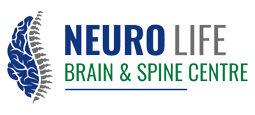Are you looking for a neurologist?
Are you noticing a change in your body movement?
Well, in medical terms, it’s referred to as movement disorder, and for the same, you have to consult one of the best Neurologist in Ludhiana to make the condition manageable. Most importantly, seeking medical assistance on time is how to make the entire situation better. In this blog, I have mentioned the most common types of movement disorder which you should know about.
Most common types of movement disorders
The given movement disorder deserves medical attention from one of the Best Neuro Hospital in Punjab. If you keep on neglecting, then it’s possible the problem can get worse with time.
- Cervical Dystonia
The condition leads to long-lasting contractions (spasms) or intermittent contractions of the neck muscles, leading to different neck movements.
- Ataxia
There are high chances that the movement disorder will likely affect the brain part responsible for the coordinated movement. Moreover, it can lead to clumsy speech, balance, or limb movement. Apart from that, several symptoms can occur.
- Chorea
Chorea is a disorder that triggers fast, irregular, repetitive, or involuntary movements of different body parts. It includes the mouth, trunk, face, and limbs.
- Dystonia
Dystonia is the condition when muscle coordination is affected. Apart from that, there is the issue of repetitive movement and twisting. Moreover, the entire body is affected, or one body part can occur under the influence.
- Functional movement disorder
Functional movement disorder means the movement disorder which can resemble any of the options mentioned above. Although, it’s not directly a neurological problem.
- Huntington’s disease
Huntington’s disease is categorized as an inherited condition. Being a neuro-related condition, there are high chances it can trigger issues of impaired cognitive abilities, uncontrolled movement (chorea), and psychiatric disorders.
- Multiple system atrophy
The multiple system atrophy triggers the neurological problem on a progressive basis. That’s not all. There is the issue of low blood pressure, and bladder function is affected.
- Myoclonus
Myoclonus is a condition that can result in lighting-quick jerks of the muscle, or it might occur in the group.
- Parkinson’s disease
This condition progresses slowly, due to which several issues can trigger stiffness, tremor, gradually decreased movement, or imbalance in the body. Moreover, many non-movement symptoms can even occur.
- Tremor
Tremor is another condition that leads to an involuntary shaking of body parts, including the head, hand, or another factor. In this case, the most common one is tremor.
Do you have any of these movement disorders?
Don’t ignore the condition at any cost!
If there’s any doubt in your mind, then make sure to ask the doctor about the same to get yourself the right care. So, schedule your initial consultation at the earliest to transform your neuro health through all the advanced and latest treatment options.



